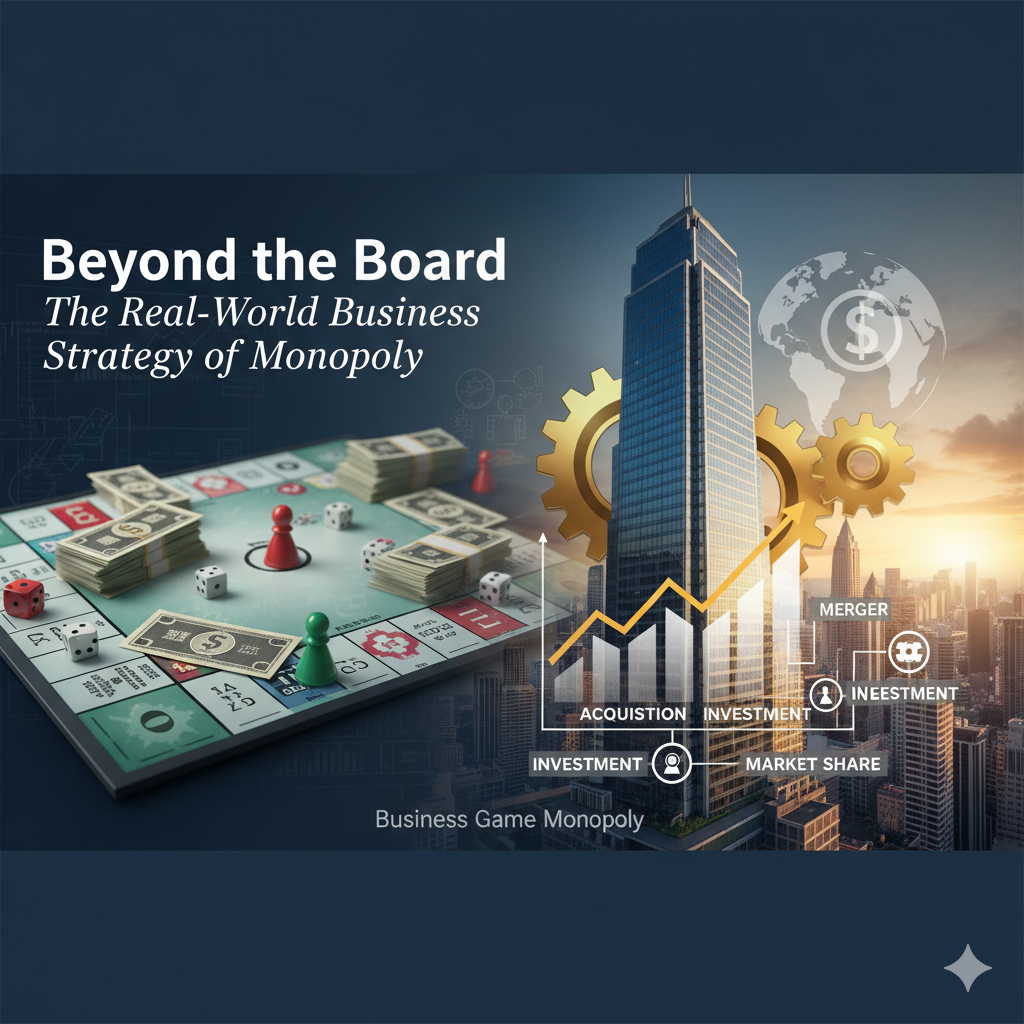Introduction
For over a century, the iconic Monopoly board has been a fixture in family game rooms. While a source of festive rivalry, it is also a profound simulation of market dynamics. The classic business game monopoly is a stark allegory for corporate strategy. Beneath its colorful surface lies a masterclass in asset acquisition and market domination. This article explores the tangible business strategies within this famous business game monopoly.
The Foundation: Aggressive Asset Acquisition
The initial phase of Monopoly is a strategic land grab. Players must actively build a portfolio. This mirrors the real-world need for strategic acquisition. True power, however, comes from assembling a monopoly. Controlling a color group unlocks development potential. This is a direct parallel to horizontal integration in business. Companies merge with competitors to consolidate market share and control pricing. Consequently, the player securing key properties mimics a tech giant dominating a market segment. This strategy makes the business game monopoly a compelling model for understanding competition.
The Lifeline: Mastering Liquidity
Perhaps the most crucial lesson is the distinction between wealth and liquidity. A player with many hotels can still go bankrupt without cash. This is a brutal introduction to the liquidity crisis. Therefore, strategic cash decisions are paramount. Should you spend all your cash to build, risking vulnerability? Alternatively, should you hoard cash, stunting your growth? The game forces a constant risk-reward calculation. Furthermore, mortgaging properties teaches the use of leverage. However, this comes with a cost, showing that debt is a tool, not a solution. Ultimately, the victor is often the one who manages cash flow with the most discipline.
The Human Element: The Art of the Deal
The rules provide a framework, but the game’s soul resides in negotiation. Monopoly is a dynamic exercise in deal-making and persuasion. Trading to complete a color group is the fastest path to victory. This requires assessing the value of assets for all players. A worthless property to you might complete a rival’s empire. Therefore, its trade value should reflect that strategic importance. Successful players create “win-win” scenarios and form temporary alliances. These are not game tricks; they are the bedrock of corporate mergers and partnerships. Learning to structure a beneficial deal is the highest-level skill the game teaches.
A Flawed, Yet Instructive, Simulation
Of course, Monopoly is an imperfect model. Its foundation on dice rolls introduces significant luck. This does not perfectly mirror the business world, where strategy generally outweighs chance. Additionally, the game is a zero-sum environment. For one player to win, others must be destroyed. This simplifies modern markets where multiple competitors can thrive.
Despite these simplifications, the core tenets hold true. The pursuit of strategic assets, the importance of cash flow, and the power of negotiation are vital in business. The next time you play this legendary business game monopoly, see it as a tactical simulator. It distills the brutal essence of business strategy into a format we can all understand.
Frequently Asked Questions (FAQ)
1. Is Monopoly an accurate simulation of real capitalism?
Monopoly is a simplified model. It illustrates concepts like monopolies and liquidity crises well. However, it is a “zero-sum” game, which is not always true in a complex economy. Therefore, it highlights the pitfalls of monopolies rather than the full spectrum of capitalist innovation.
2. What is the single most important business lesson from Monopoly?
The most critical lesson is managing liquidity. You can own valuable properties, but without cash for short-term obligations, you will fail. This translates directly to the business axiom: “Cash is king.”
3. How does the trading in Monopoly relate to real-world business?
The negotiation phase parallels business deal-making. It teaches you to assess strategic value, understand opponents’ needs, and structure advantageous trades. These are essential skills for mergers and partnerships.
4. Does the element of luck from the dice ruin the strategic value?
Luck plays a role, serving as an analogy for unpredictable market forces. However, over the long term, a sound strategy will almost always overcome pure luck, just as in business.
5. What is the biggest strategic mistake players make?
The most common error is a lack of focused acquisition. Buying properties randomly without a plan is like a company diversifying without achieving core market dominance. Without a monopoly, you cannot build and are reliant on luck.


1 Comment
Pingback: Is Vanessa-Casino.com 8002662278 a Scam? Uncovering the Truth - Business Financial | Technology News